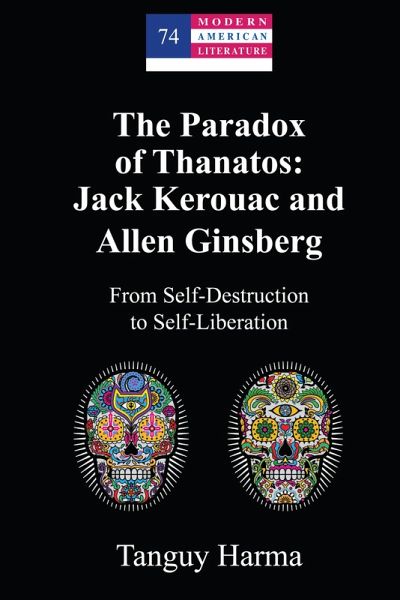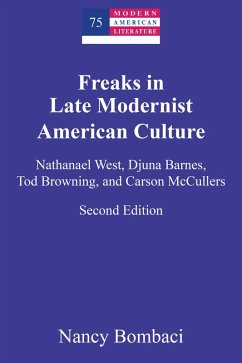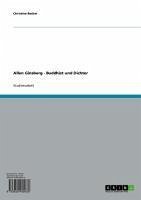
The Paradox of Thanatos: Jack Kerouac and Allen Ginsberg (eBook, ePUB)
From Self-Destruction to Self-Liberation
Versandkostenfrei!
Sofort per Download lieferbar
Statt: 86,65 €**
71,95 €
inkl. MwSt.
**Preis der gedruckten Ausgabe (Gebundenes Buch)
Alle Infos zum eBook verschenkenWeitere Ausgaben:

PAYBACK Punkte
36 °P sammeln!
More often associated with hedonism and cheap thrills than with notions of alienation and suffering, Beat literature has rarely been envisaged from the perspective of the paradoxical dynamics at play in the writings. What this book evidences is that the sacrosanct quest for transcendence staged by Kerouac and by Ginsberg is underpinned, primarily, by a trope of nullification that acts as a menace for the self. This tropism for destruction and death is not only emblematic of their works, it is also used as a literary strategy that seeks to conquer the fear of self-annihilation through the writi...
More often associated with hedonism and cheap thrills than with notions of alienation and suffering, Beat literature has rarely been envisaged from the perspective of the paradoxical dynamics at play in the writings. What this book evidences is that the sacrosanct quest for transcendence staged by Kerouac and by Ginsberg is underpinned, primarily, by a trope of nullification that acts as a menace for the self. This tropism for destruction and death is not only emblematic of their works, it is also used as a literary strategy that seeks to conquer the fear of self-annihilation through the writing itself. It is precisely this interplay-approached through an Existentialism that simultaneously converges upon the Transcendentalist legacy of Beat writing-which probes the paradoxical dimension of the texts, enabling the mythological figure of Thanatos to take centre stage.
The critical synergy of the book, brought about by relating American literature and culture to European thought, enables in-depth analyses of a selection of novels and poems, grasped through their aesthetic, ontological and historical dimensions. Shedding new light on the literary strategies of two widely misunderstood American writers of the twentieth century, this captivating study into the drives for self-destruction and self-liberation encapsulated by Kerouac and Ginsberg sets out to reinvent the well-worn definition of 'Beat' through its original approach-an essential critical piece for all those interested in the American counterculture.
The critical synergy of the book, brought about by relating American literature and culture to European thought, enables in-depth analyses of a selection of novels and poems, grasped through their aesthetic, ontological and historical dimensions. Shedding new light on the literary strategies of two widely misunderstood American writers of the twentieth century, this captivating study into the drives for self-destruction and self-liberation encapsulated by Kerouac and Ginsberg sets out to reinvent the well-worn definition of 'Beat' through its original approach-an essential critical piece for all those interested in the American counterculture.
Dieser Download kann aus rechtlichen Gründen nur mit Rechnungsadresse in A, D ausgeliefert werden.













